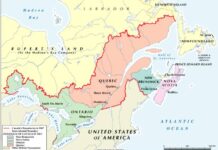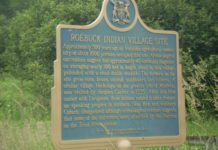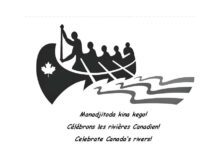Last week, as you shopped for groceries before Thanksgiving, or planned a family get-together for the holiday, you may have heard about the Federal Government’s decision to give $800 million to those people involved in the Sixties Scoop. These were the thousands of Indian children (I use that term deliberately) who were taken from their homes when they were as young as 4-years old, and sent to be adopted by white families. Between 1960 and 1984, it is estimated that more than 16,000 children were removed, often forcibly, from their families and sent to other provinces in Canada, and even as far away as the U.S. and the U.K. As a result of a class action law suit against the Canadian Government, the sum of $750 million will be distributed among them, and the rest will be used to set up a foundation dedicated to reconciliation initiatives.
Now, I imagine that, when many people heard this news, on top of everything they’ve heard about Residential Schools and other First Nations grievances, there was at least a moment of indignation. For others, there was anger and a repeat of the oft-heard complaint about Indians getting everything for nothing, not paying taxes, getting free education, etc., etc., etc. But I also wonder: how would you feel if your child of five, or six, was removed from your home by the OPP, against your wishes and in spite of your appeals, and sent far away to a place where they didn’t speak your language, had a completely different culture, and wanted to raise your child to forget their home and community.
How would you feel, as a child, suddenly put down in a place where you didn’t understand what was happening, where people spoke a different language, perhaps in a nice upper-middle class home in Ottawa? The nights of crying yourself asleep, crying out for parents, grandparents and siblings; slowly coming to understand that no-one was coming to take you home. Then followed the years of wondering who you really were: why did this happen to you, torn between your feelings for your adoptive parents and siblings, and guilt that you couldn’t remember the faces of your birth parents. Anyone who has seen the movie “Lion” will have some idea of what this does to an adopted child suddenly torn from everything they knew and everyone they loved.
The central fact of Canadian history, in this, the year of Canada 150, is that relations with indigenous people is the great shame, the great scandal at the heart of this country. If there is a great deal talked about First Nations, and great claims made on their behalf, it is because of the incredible wrong that has been done them over centuries. Think about this: these peoples were never conquered by European armies. They were allies and friends of the settlers, helped them survive the first years in this strange climate, showed them how to use the land and the water. Then it was taken away from them by their “allies”, who decided that they were not “civilised” enough to take care of land, water, trees, natural resources, even though the indigenous peoples had carried on complex trading networks that stretch from the Atlantic to Lake Superior and beyond; from the Great Lakes to the Gulf of Mexico.
In 1850, the Government made treaties with the peoples living north of Lakes Superior and Huron. In return for the land, they gave each Indian an annuity, a yearly cash gift. Today, once a year, each one is given $5. Yes, $5. Think of it this way: with $1 we say, “thanks for the Hemlo gold”, next $1: thanks for the lumber industry; next $1, thanks for the fishing industry on the Great Lakes; next $1, thanks for the nickel and copper from Sudbury; and the final $1 is just for letting us settle on their traditional lands, where they once hunted and fished and trapped all the wildlife we have annihilated since 1850.
The land we live on in eastern Ontario was taken without even paying an annuity: which is why there are no Reserves around here. The Algonquins at Golden Lake had to buy that land because the Government had never entered into treaty with them. Whatever you think of Trudeau, he was right in saying that the relationship with indigenous people in Canada is the big one. It is our very own Apartheid system. Imagine the liberal uproar if we had a Jewish Act, or a French Act, or even, heaven forbid, an English Act to mirror the Indian Act which has dictated so much of the history of our indigenous peoples.
Canadians need to spend more time in celebrating Canada 150 by learning something of this vital part of our history. And, over the coming weeks and months, the Times will try to do so.








